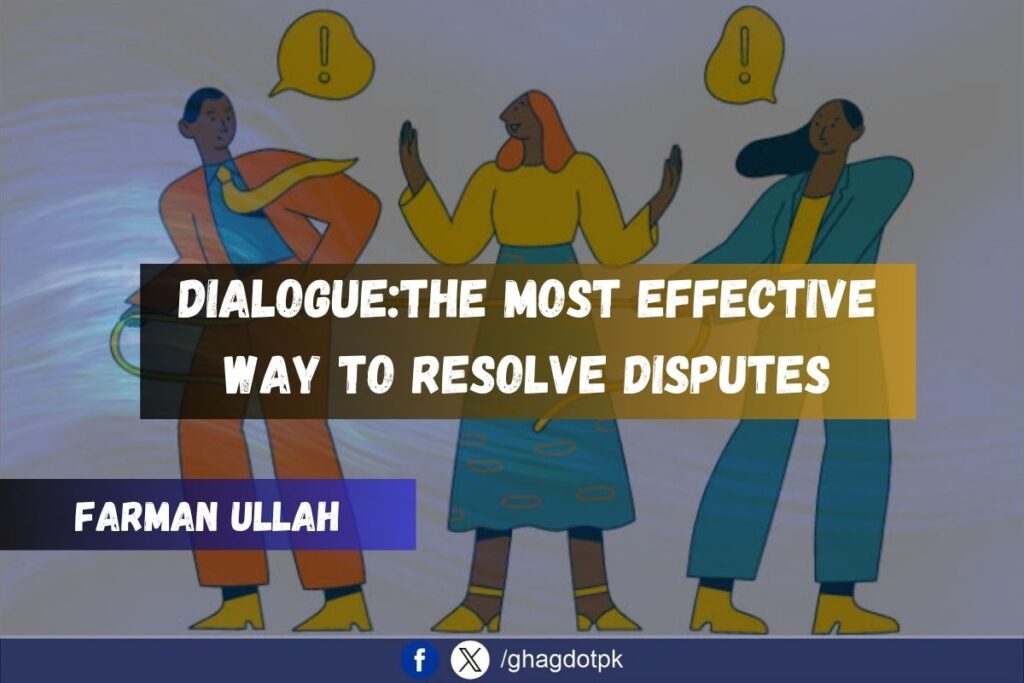By Farman Ullah
The relationship between India and Pakistan has been tense for many years, with both countries struggling to find a way to resolve their differences. However, there’s a growing effort to improve ties between the two nations. Former Foreign Minister Bilawal Bhutto Zardari has suggested a new approach to address disputes, particularly terrorism. His idea is for intelligence agencies from both countries, such as ISI and RAW, to work together to tackle this issue.
This approach is worth considering, as it could help build trust and reduce tensions between the two nations. In the past, military leaders and National Security Advisors (NSAs) from both countries have met to discuss issues and resolve conflicts. This precedent could be built upon, with intelligence agencies following suit.
Pakistan believes that outstanding disputes with India should be resolved through diplomacy rather than military action. This stance has received support from the US, Russia, and the UN. Pakistan’s delegation has made a strong case for resolving these issues through dialogue and restraint, emphasizing the need for India to respect International Law, UNSC resolutions, and the Indus Water Treaty.
The Kashmir dispute and cross-border terrorism are major issues that need to be addressed. Pakistan’s delegation has argued that there’s no military solution to these problems and that only diplomacy and dialogue can deliver lasting peace in South Asia. This message needs to resonate in world capitals, and both countries should work towards finding a peaceful resolution.
To achieve lasting peace in South Asia, it’s essential to have a perpetual de-escalation of tensions, rather than just a temporary thaw. This requires a sustained effort from both countries to build trust and work towards resolving disputes. Both nations need to put aside their differences and work towards a common goal of peace and stability.
The idea of intelligence agencies working together is not new, but it’s an approach that could yield positive results. By sharing intelligence and coordinating efforts, both countries could better address the issue of terrorism. This would require a high level of trust and cooperation, but it’s a step in the right direction.
In the past, India and Pakistan have had their share of conflicts and skirmishes, but they’ve also had moments of diplomacy and cooperation. The Simla Agreement and the Lahore Declaration are examples of efforts made by both countries to find a peaceful resolution to their differences. These agreements may not have been entirely successful, but they show that both nations are capable of working together.
The international community has been urging both countries to resolve their differences peacefully. The US, Russia, and the UN have all called for diplomacy and dialogue to address outstanding disputes. Pakistan’s stance on this issue has been clear: there’s no military solution, and only diplomacy can deliver lasting peace.
The Kashmir dispute is a major issue that needs to be addressed. Both countries have different perspectives on the issue, but it’s essential to find a solution that works for both. The people of Kashmir are suffering, and it’s time for both countries to put aside their differences and work towards finding a peaceful resolution.
Cross-border terrorism is another major issue that needs to be addressed. Both countries have accused each other of supporting terrorism, but it’s essential to find a solution that works for both. Intelligence agencies working together could help address this issue, and both countries could benefit from sharing intelligence and coordinating efforts.
Building a new relationship between India and Pakistan requires a sustained effort from both countries. By working together, intelligence agencies can help address terrorism, and diplomacy can help resolve outstanding disputes. It’s time for both countries to take a step forward and work towards a more peaceful future. Both nations need to put aside their differences and work towards a common goal of peace and stability. With diplomacy, dialogue, and cooperation, India and Pakistan can find a way to resolve their differences and build a more peaceful future.
Both countries have a lot to gain from peace and stability. Economic cooperation, trade, and cultural exchange can benefit both nations. People-to-people contact can help build bridges between the two countries, and tourism can promote understanding and goodwill.
The road to peace will not be easy, but it’s a journey worth taking. Both countries need to be willing to compromise and find solutions that work for both.The international community can play a supportive role, but ultimately, it’s up to India and Pakistan to find a way to resolve their differences.
By working together, India and Pakistan can build a more peaceful future. It’s time for both countries to take a step forward and work towards a new relationship based on diplomacy, dialogue, and cooperation. With sustained effort and a willingness to compromise, both nations can find a way to resolve their differences and build a more peaceful future.
Peace between India and Pakistan will benefit not just the two countries but the entire region. It’s time for both nations to put aside their differences and work towards a common goal of peace and stability. With diplomacy and cooperation, India and Pakistan can build a brighter future for their people and the region.
Let’s hope that both countries will take the necessary steps to build a more peaceful future.






